
Nikki Haley has a telling expression on her face as she speaks to Russian Ambassador to the United Nations Vasily Nebenzya, left, before a Security Council meeting on Iran, Friday, Jan. 5, 2018, at United Nations headquarters. (AP Photo/Mary Altaffer)
Today’s meeting of the United Nations Security Council illustrated the misgivings many Americans have about its effectiveness, when United States Ambassador to the UN Nikki Haley addressed the body this afternoon regarding the protests in Iran, and the majority of other nations’ representatives dismissed them as a mere “domestic issue,” with Russia and Iran going so far as to launch a tirade of abuses at the United States.
The meeting, video of which can be viewed on C-SPAN’s website, was called by Haley in order to discuss “the troubling and dangerous situation in Iran,” as RedState reported yesterday.
In her statement calling for the meeting, Haley noted the “horrors” that had occurred in Syria, which “began with a murderous regime denying its people’s right to peacefully protest,” and expressed her hope that a similar situation would not repeat itself in Iran.
Ambassador Nikki Haley on the situation in #Iran: "This is a matter of fundamental human rights for the Iranian people, but it is also a matter of international peace and security."
The United States has requested a #UNSC briefing at 3pm EST tomorrow. pic.twitter.com/caPEtNlrLs
— U.S. Mission to the UN (@USUN) January 5, 2018
“This is a matter of fundamental human rights for the Iranian people, but it is also a matter of international peace and security,” said Haley, adding that the United States would view any nation that sought to block the Security Council from even having this discussion as similar to the Iranian regime’s efforts to silence its own people.
There were reports that Russia, one of the permanent members of the Security Council, was considering blocking the meeting, which would have necessitated a roll call vote of the member nations, but Haley had secured sufficient votes in support of the meeting and the vote was not necessary.
Such consensus would end once the meeting began.
Kazakh Ambassador Kairat Umarov, the current president of the Security Council (an office which rotates monthly among the member nations), called the meeting to order and formally recognized the Ambassador of Iran to grant him permission to speak at the end of the meeting. Iran is not a member of the Security Council but was allowed to participate today because the situation in their country was the issue at hand.
UN Assistant Secretary General for Political Affairs, Taye-Brook Zerihoun, then gave introductory remarks discussing the history of the Iranian protests. Zerihoun noted that the protests, which began in late December last year, had spread throughout Iran and involved more than a thousand people arrested, many of which the Iranian regime claims have since been released. However, because the Security Council does not have an established presence on the ground in Iran, they are unable to confirm or deny any claims of the Iranian regime.
Haley then spoke, reading from her prepared remarks with a strong and clear voice supporting the rights of the Iranian people and condemning the objections to come from the other Security Council members that she obviously predicted.
She praised the protests as”a spontaneous expression of fundamental human rights” and “a powerful exhibition of brave people who have become so fed up with their oppressive government that they’re willing to risk their lives in protest,” and implored that the “world should applaud their courage.”
“The voices of the Iranian people should be heard,” continued Haley, expressing frustration that they had often debated the proper role of human rights in the Security Council, but some members took the stance that human rights were “the business only of the governments that control them.”
The United States rejects that view, said Haley in comments that echoed back to the American Declaration of Independence’s recognition of self-evident, inalienable rights:
Human rights are not the gift of governments. They are the inalienable right of the people themselves.
Moreover, Haley continued, these human rights were irrevocably intertwined with peace and security, voicing her opposition to the objections that would follow her remarks by nations characterizing the protests as a “domestic matter” for Iran.
“Freedom and human dignity cannot be separated from peace and security,” said Haley. “When the rights of the people are denied, the people rightly resist. If the concerns are not acknowledged, then peace and security are inevitably threatened. We have seen that repeatedly throughout human history.”
Haley then tied the Iranian regime’s “contempt for the rights of its people” to its actions that “spread conflict and instability far and wide,” specifically mentioning how the Iranian regime spends “at least $6 billion every year propping up the murderous Assad regime in Syria,” millions on militias in Iraq, and millions more to Houthi rebels in Yemen, including sending them ballistic missiles to fire at other countries.
Haley described how the regime gives “low-interest loans to the elite and well-connected,” while awarding construction contracts to corrupt allies of the Islamic Revolutionary Guard Corp. These contracts resulted in poorly-constructed buildings that failed to comply with modern safety standards, and thousands of them collapsed during a recent earthquake, killing hundreds.
“Meanwhile,” she added, “the average Iranian family is 15 percent poorer today than it was 10 years ago.”
The Iranian people are taking to the streets because they can no longer tolerate their government ignoring their needs while these abuses continue, said Haley, repeatedly describing a common slogan from the protests: “The Iranian people chant, ‘Think of us.'”
Today the people of Iran are speaking to their government, and their message is undeniable: Stop the support for terrorism. Stop giving billions of our money to killers and dictators. Stop taking our wealth and spending it on foreign fighters and proxy wars. Think of us.
Haley condemned the regime’s decision to cut off internet access as “attempting to silence the voice of the Iranian people,” and called on them to immediately restore it.
Regarding the argument that intervening would disrespect Iran’s sovereignty, Haley acknowledged that “every UN Member State is sovereign, but Member States cannot use sovereignty as a shield when they categorically deny their people human rights and fundamental freedoms.”
As she neared the end of her remarks, Haley slammed the Iranian regime’s attempts to characterize protesters as puppets of foreign governments and took care to emphasize that the laissez-faire approach of President Barack Obama’s administration during the previous Iran protests in 2009 would not be current American policy:
And let there be no doubt whatsoever: the United States stands unapologetically with those in Iran who seek freedom for themselves, prosperity for their families, and dignity for their nation. We will not be quiet. No dishonest attempt to call the protestors, “puppets of foreign powers,” will change that. The Iranian people know the truth. And we know the truth.
They are acting of their own will, on their own behalf, for their own future. Nothing will stop Americans from standing in solidarity with them. In 2009, the world stood by passively while the hopes of the Iranian people were crushed by their government. In 2018, we will not be silent.
Haley concluded by calling on the Security Council to honor its founding principles by taking action to support the Iranian people in their quest for “their human rights and fundamental freedoms”:
If the founding principles of this institution mean anything, we will not only hear their cry, we will finally answer it. The Iranian regime is now on notice. The world will be watching what you do.
Haley would have been perhaps more accurate if she had said, “the United States will be watching,” because the comments from the majority of nations that followed did not join her clarion call to support the Iranian people.
As Haley had predicted, many countries dismissed the protests as a domestic matter, claiming respect for Iran’s sovereignty to advocate for inaction, and calling the matter inappropriate for the Security Council to address at all. A sampling of the comments follows (majority speaking through translators).
French UN Ambassador, Francois Delattre, said that the Iranian people alone should speak on this matter and the world should not intervene. The Iran Protests “do not constitute a threat to international security,” and “change in Iran will not come from without but from the Iranian people.”
Minister Counselor to the Bolivian UN Ambassador, Pedro Luis Inchauste Jordan criticized today’s meeting as “a blatant attempt” to bring issues to the Security Council “that don’t represent threats to international peace and security” and rejected the “political” and “clumsy attempts to force” this onto their agenda. He also condemned regime change and nation building as activities which only lead to human rights abuses. Iran should govern themselves “without international meddling.”
Mansour Ayaan al-Otaibi, the Kuwaiti UN Ambassador was one of the most vocal allies for Haley, presumably reflecting how American and world intervention preserved his country when Iraq invaded in 1990.
Al-Otaibi recognized the right of the Iranian people to peaceful protests and expressly said that “the State of Kuwait believes it’s important to engage in preventative diplomacy,” to “nip crises in the bud before they degenerate.” Unlike the majority of the other members, Kuwait’s position was that the Security Council’s charter did specifically put the current situation in Iran as an issue that they should address.
British UN Ambassador Matthew John Mycroft did side with Haley regarding the appropriateness of a Security Council meeting on Iran, because their charter specifically covered situations that could endanger international peace and security. “No one is forcing Iran onto our agenda,” he said.
This was the case, Mycroft continued, because of concerns that “extend beyond recent treatment of protesters,” including the use of the death penalty — including for juveniles — and restrictions on peaceful assembly and speech.
The Iranian people “represent an ancient and important people that have an important place in the modern world,” but the regime was acting to endanger and destabilize the region and world, economically and politically. He specifically cited Iran’s “unacceptable” support of terrorists in Syria, and elsewhere, including the prohibited sale of arms to the Houthis in Yemen, as Haley had mentioned, as well as their continued heavy investing in ballistic missile efforts.
” A prosperous stable Iran is beneficial to us all,” in the Middle East and beyond, concluded Mycroft, and respecting the rights of their people is “the only way to achieve the peace” that the world wants to see.
Irini Schoulgin Nyoni, Deputy Swedish Ambassador, delivered several talking points condemning abuses and loss of life, and supporting a “democratic process,” but also voiced Sweden’s faith that the nuclear deal with Iran was successfully guaranteeing the “peaceful nature” of Iran’s nuclear program, and the “human rights violations in Iran must be separated” from any actions regarding the Iran deal, objecting to America’s threat of additional sanctions or possible withdrawal from the deal altogether, which President Trump is considering.
Karel Van Oosterom, the Dutch UN ambassador, took the position that “the situation in Iran now seems to be calming down,” and urged continued dialogue as a “preventative measure” to reduce violence.
Joanna Wronecka, Polish UN Ambassador, expressed her country’s concerns about regional tensions and noted that “Iran has the potential to play a constructive role” and contribute to stability in the Middle East.
China was predictably opposed to Haley’s speech. “Today’s agenda is a situation of the Middle East,” said Deputy UN Chinese Ambassador Wu Haitao, expressly stating that the Iranian situation “does not pose any threat” to the international community and should not be on the Security Council’s agenda.
Russian UN Ambassador Vasily Nebenzya railed against Haley and the United States when it was his turn to speak, attacking what he called “undermining the authority” and “abusing the platform of the Security Council.”
Nebenzya accused the US of “clouded thinking,” questioning why this was a necessary meeting today when the situation in Iran has become stabilized — neglecting to mention how the restrictions on media, internet access, and UN inspectors means that it is impossible to verify the regime’s claims about such stability.
“We don’t want to be involved in destabilizing Iran,” he said, then accusing the United States and saying that Americans should have had to face the Security Council for the protests in Ferguson and Occupy Wall Street, plus the “occupation of Iraq under openly false pretenses.”
Nebenzya slammed the “destructiveness of geopolitical engineering,” said that Russia was wondering if the United States had “any other means besides sanctions at your disposal,” and pushed for continued “regional dialogue.” Russia did not want to have any more meetings for topics like this, he said.
Umarov then addressed the Security Council in his role representing Kazakhstan, taking a position that echoed their Russian neighbors, but without the insults. The Security Council deals with matters related to “international peace and security,” he said, and they “regret the loss of life,” but view the Iran protests as a “domestic matter” that was not a threat. The “situation is gradually normalizing,” he said, and “we have too many issues to address already in the same Middle East area.”
Last to speak was Iran, which again is not a member of the Security Council but was granted recognition to address the group today.
Iranian UN Ambassador Gholam Ali Khoshroo, speaking in English, railed against the United States’ move to bring this issue before the Security Council, as “an abuse of its power as a permanent member and an abuse of the Council itself.”
The protests were a “matter of pure domestic nature,” he said, and it was “unfortunate” that despite the resistance of other members, he continued, the Security Council “has allowed itself to be abused” by addressing this matter outside its charter.
America has “lost every shred of moral credibility” in the world, Khoshroo said, accusing us of “flouting international law” and a “long history of United States’ bullying” at the UN.
The protests, he claimed, were caused by “violent infiltrators,” encouraged by foreign intervention, including President Trump. This followed America’s “long history of intervention in Iran,” dating back to 1953. He then mentioned multiple examples of events in the United States — the 1970 shooting of college students at Kent State University, protests at the Democratic National Convention in Chicago in 1968, the 1992 L.A. riots, the Rodney King beating, the 1993 raid on the Branch Davidian compound in Waco, stories of African-Americans killed by police officers — to condemn the Americans as hypocrites for wanting to intervene in Iran.
Khoshroo blamed recent violence as “very clearly directed from abroad,” by “instigators” in the United States and Europe who he claimed had encouraged armed uprisings against the police and government, trained protesters to make Molotov cocktails, and other acts of violence.
Regarding the regime’s blocking of internet access, his excuse was that social media posts originating from America included threats and incitement to violence. Other than targeting Trump — who he absurdly claimed had “joined with ISIS to promote instability in our region” — he did not identify specific social media posts or users. Presumably, he meant that the regime was talking about posts from random American civilians, but there is no evidence that this is what is driving the protests at all.
Despite the efforts to shift blame to America by Iran and their Russian allies, the news reports that have emerged from Iran clearly show several emerging themes from the protests: recognition for the rights to free speech and peaceful assembly, an end to the support for terrorism and regional instability, opposition to government corruption, economic concerns, and perhaps the most powerfully symbolic, the women who are protesting the strict Islamic codes regarding clothing and social interactions.
https://twitter.com/AmirToumaj/status/949335200227577858
At this date, it is impossible to predict if the situation in Iran is truly “stabilizing,” as the regime and many at the Security Council claimed today, especially considering the restrictions on internet access and meaningful UN inspections.
Today’s meeting made clear that while the United Nations Security Council members have all the talking points about supporting peace, when it comes to the Iranian regime’s brutal oppression of its own people and diversion of their resources to fund terrorism and instability around the world, talking points is all they have.
The United States took a strong stance today; whether they can convince anyone else to join them in any substantive way remains very much in doubt.
Haley’s remarks to the Security Council today may be read in full at the United States Mission to the United Nations’ website.
Follow Sarah Rumpf on Twitter: @rumpfshaker.

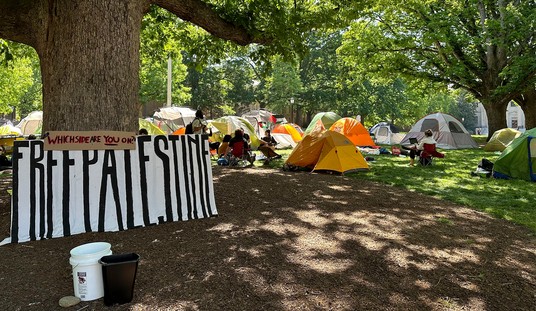



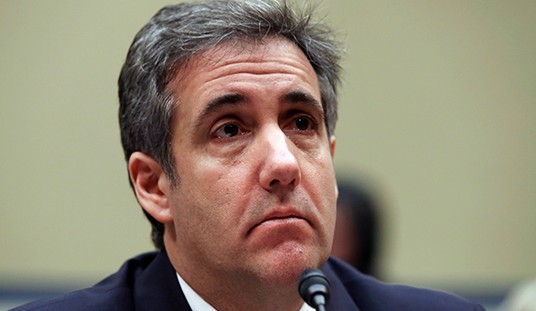


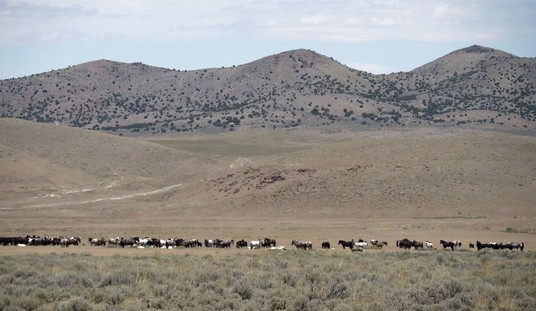

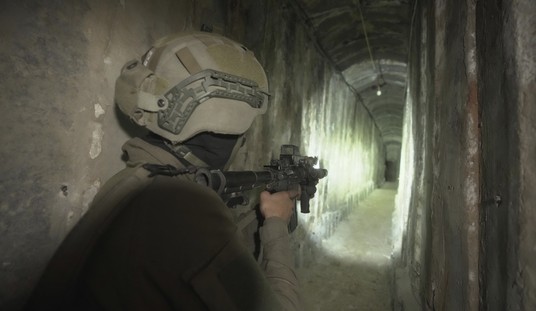
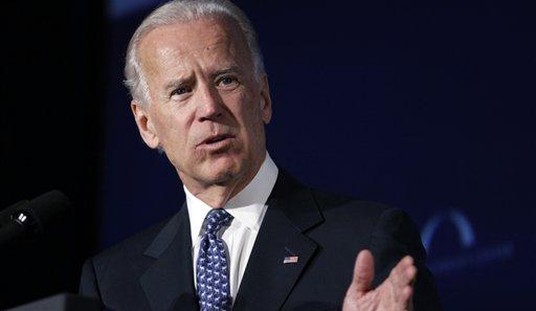

Join the conversation as a VIP Member